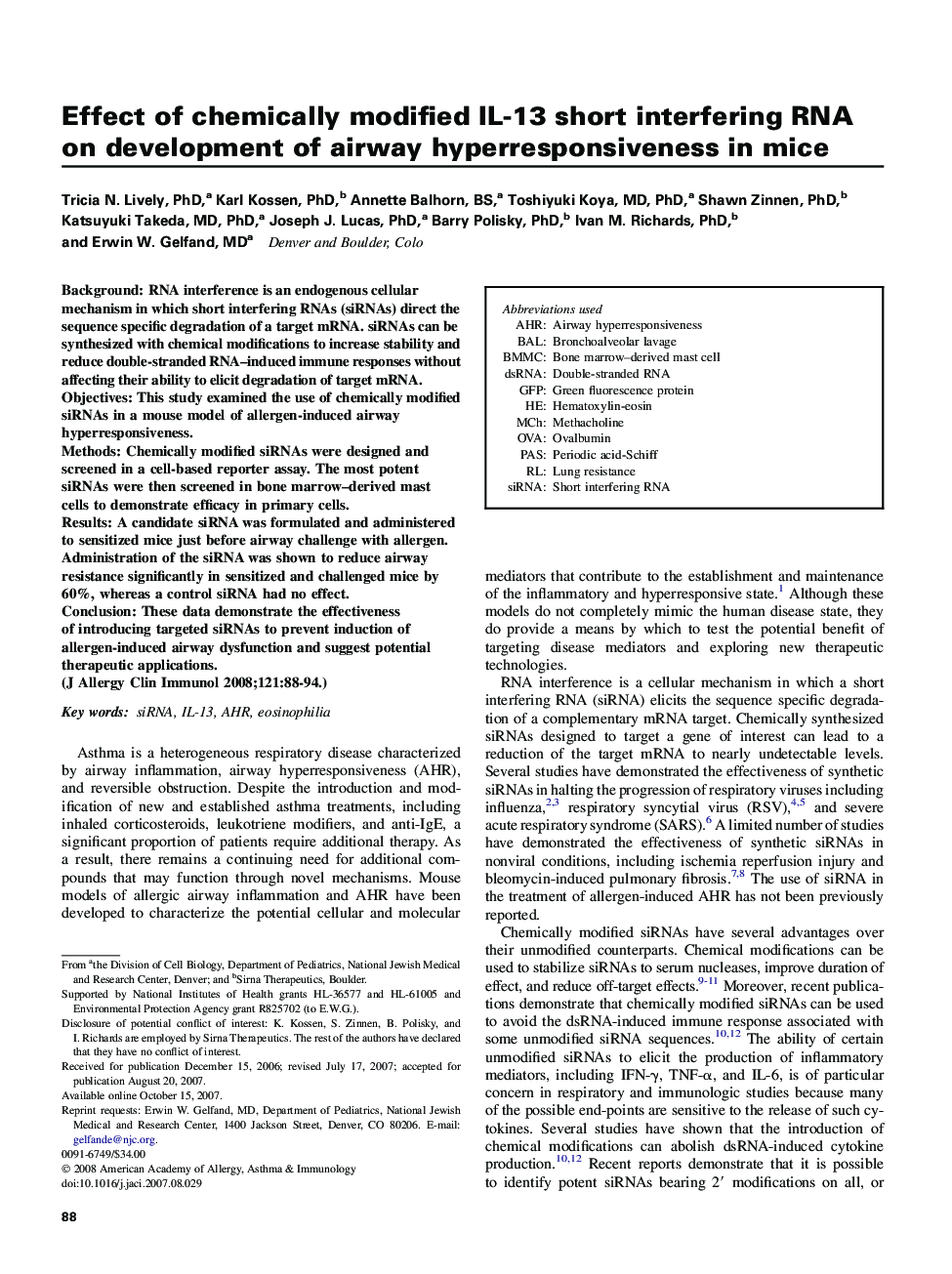| Article ID | Journal | Published Year | Pages | File Type |
|---|---|---|---|---|
| 3200993 | Journal of Allergy and Clinical Immunology | 2008 | 7 Pages |
BackgroundRNA interference is an endogenous cellular mechanism in which short interfering RNAs (siRNAs) direct the sequence specific degradation of a target mRNA. siRNAs can be synthesized with chemical modifications to increase stability and reduce double-stranded RNA–induced immune responses without affecting their ability to elicit degradation of target mRNA.ObjectivesThis study examined the use of chemically modified siRNAs in a mouse model of allergen-induced airway hyperresponsiveness.MethodsChemically modified siRNAs were designed and screened in a cell-based reporter assay. The most potent siRNAs were then screened in bone marrow–derived mast cells to demonstrate efficacy in primary cells.ResultsA candidate siRNA was formulated and administered to sensitized mice just before airway challenge with allergen. Administration of the siRNA was shown to reduce airway resistance significantly in sensitized and challenged mice by 60%, whereas a control siRNA had no effect.ConclusionThese data demonstrate the effectiveness of introducing targeted siRNAs to prevent induction of allergen-induced airway dysfunction and suggest potential therapeutic applications.
